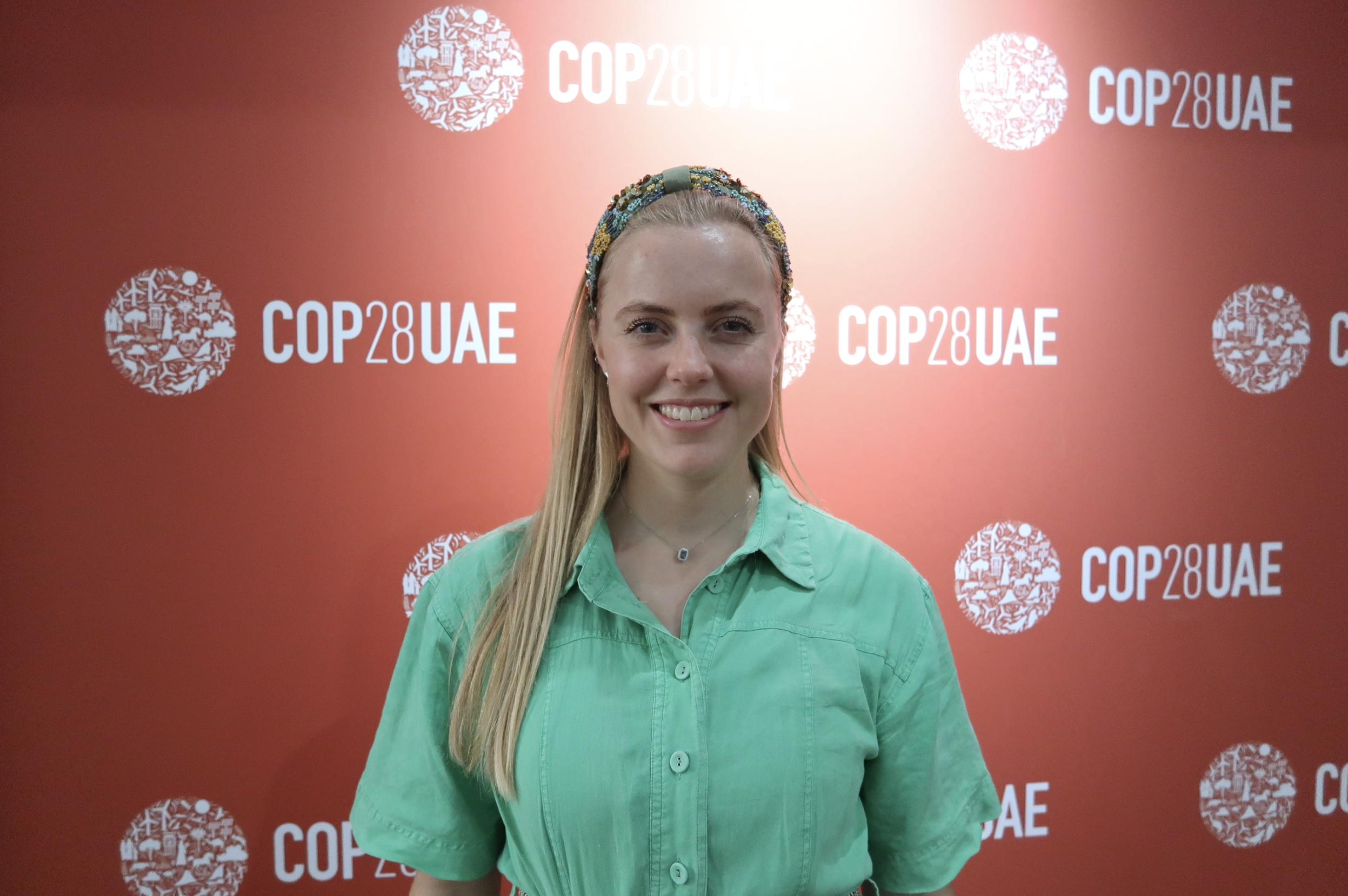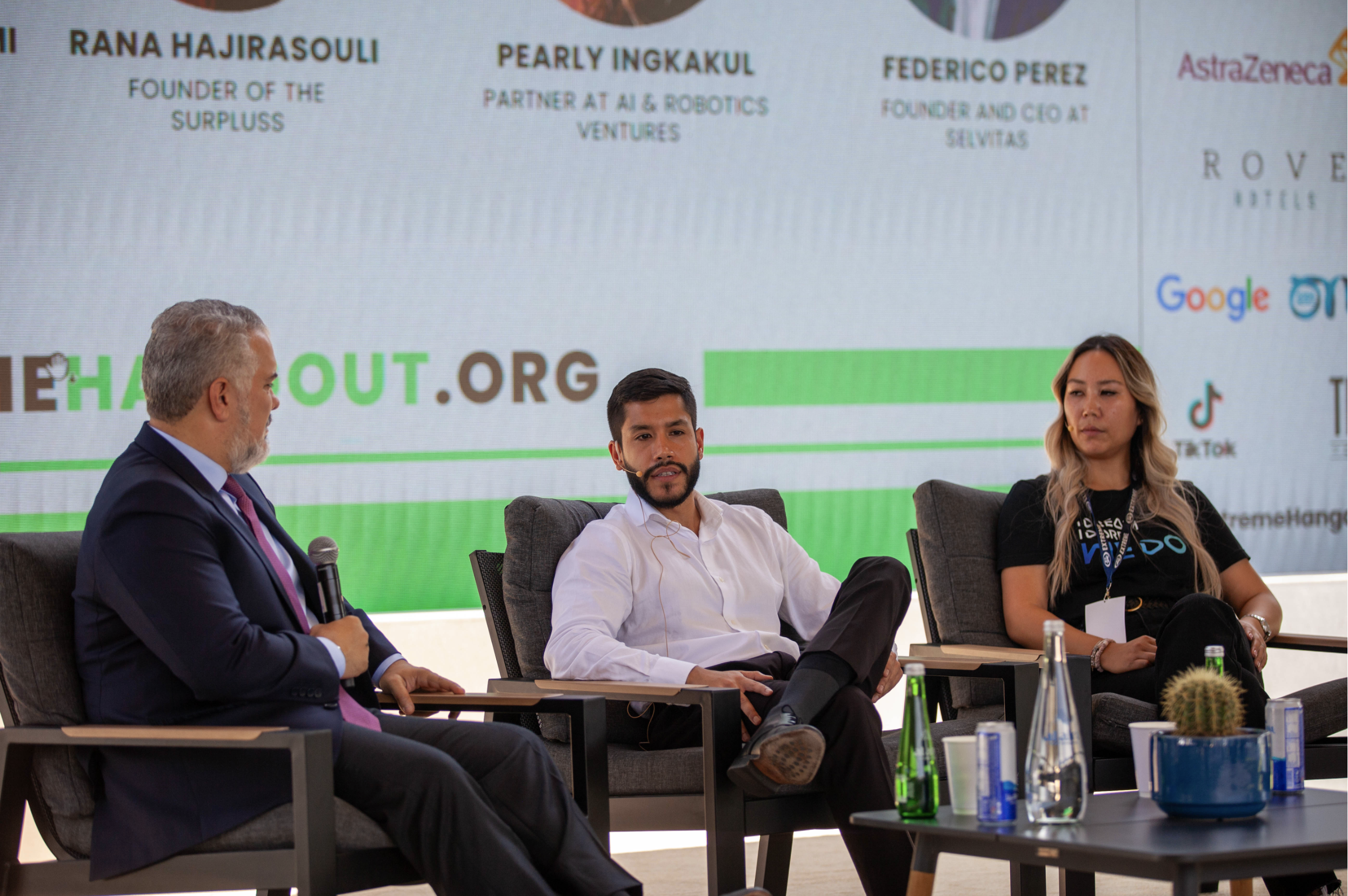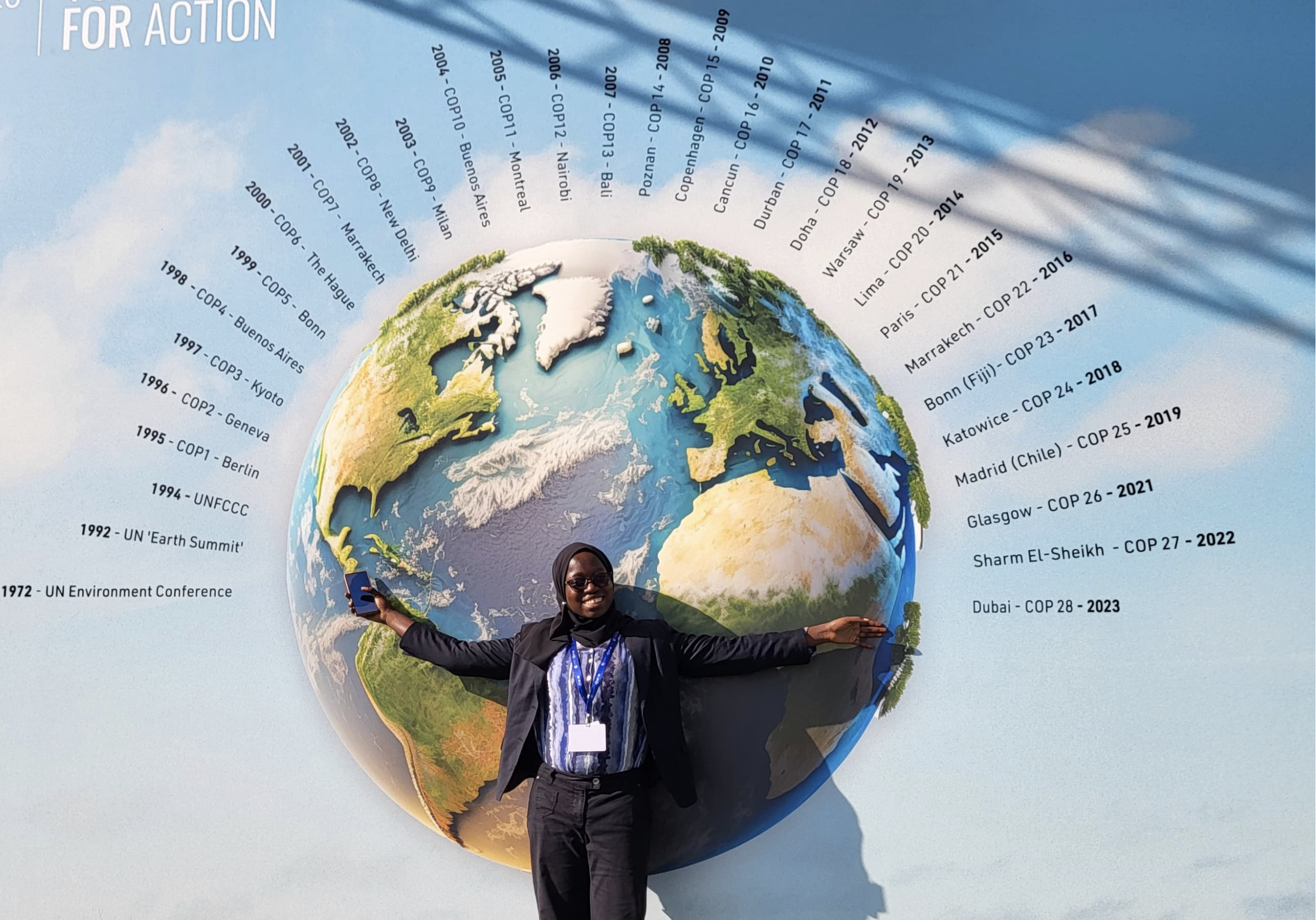Young leaders tackle the climate crisis during a groundbreaking COP28
COP is the largest climate conference of the year. It is where world leaders address climate injustice and negotiate how to tackle the climate crisis. This year, over 50 of our Ambassadors joined young leaders spearheading the demand for climate justice.
What decisions were made at COP28?
“COP28 was transformative,” says Federico Perez, founder and CEO of Selvitas. “It was marked by a series of groundbreaking developments, the most pivotal being the unanimous agreement to move away from fossil fuels.”
In a historic decision that sets a new course for global climate policy, leaders from just under 200 countries approved a global pact that calls for “transitioning away from fossil fuels” like oil, gas and coal that are dangerously heating the planet.
What does transitioning away from fossil fuels mean?
“The science is clear,” explains Shah Rafayat Chowdhury, Co-Founder and President of Footsteps Bangladesh. “We must fully phase out fossil fuels in order to reach our 1.5 Celcius target, yet a handful of nations are still challenging the science when there is barely any time left on our hands.”
In 2015, 195 nations pledged to limit the earth's temperature increase to 1.5 degrees Celsius above pre-industrial levels, known as the Paris Agreement. This benchmark was set to limit the impact of climate change on the earth, but with an increasing number of natural disasters and extreme weather becoming the new norm, we must do all that we can not to exceed that 1.5-degree limit.
At COP28, European leaders and many of the nations most vulnerable to climate-fueled disasters urged for a complete phase-out of fossil fuels, which was met with intense pushback from major oil exporters. In the end, a compromise was reached, calling on countries to move away from fossil fuels in this decade and to stop adding carbon dioxide to the atmosphere completely by midcentury.
“It is up to us young people to fight for the future of this world, innovating, advocating, and speaking up for what is right, for which more support needs to reach us so that we can work creatively and collaboratively,” says Shah.
It’s up to young leaders to fight climate change, so what did they take away from COP28?
Our Ambassadors are leading the fight against climate change, whether through their own organisations or by working within larger companies to make them more climate-conscious. It is vital for young leaders to attend climate discussions so that they can learn from industry experts and also demonstrate how they are fighting climate change, be that in their communities or globally.
Roos Bruggink, for example, is a Senior Account Manager at the global communications firm, Edelman. Reflecting on her time at COP28, she says, “I am more determined than ever to drive meaningful change, work with stakeholders across the healthcare ecosystem and share untold stories of those most impacted by the climate crisis.”

Mavis Durowaa Mainu is the Executive Officer to the CEO at Climate Analytics, “I will ensure that gender, youth, Indigenous groups and other minority groups are engaged, in the development of national climate strategies and that the climate strategic documents reflect their views and actions are appropriately targeted, with an intersectional approach,” she says.
On their key COP takeaways, Federico said, “My first COP experience was invigorating, speaking at multiple panels, pitching my company, attending negotiations and coordinating bilateral meetings with YOUNGO. I plan to integrate these learnings into my work over the next year. I will amplify my advocacy for systemic change, particularly focusing on transforming food and land use systems, and intensifying efforts in adaptation and loss and damage responses.”

What does the future look like post-COP28?
Now that COP28 is over, we asked our Ambassadors what effect they hope COP has on climate conversations. “COP28's initiatives, like the commitment to net-zero emissions by oil and gas companies, are pivotal for climate action. I anticipate increased awareness and urgency in climate discussions, fostering collaboration between governments, private sectors, and communities,” notes Fatou.

Continuing the momentum of the climate conversations that took place at COP28 is vital in achieving the agreement to move away from fossil fuels. “ Every second now matters,” explains Shah, “because our actions today will decide the fate of our world tomorrow.
Catch up with our live streams from COP28 on our Facebook page or YouTube channel!
